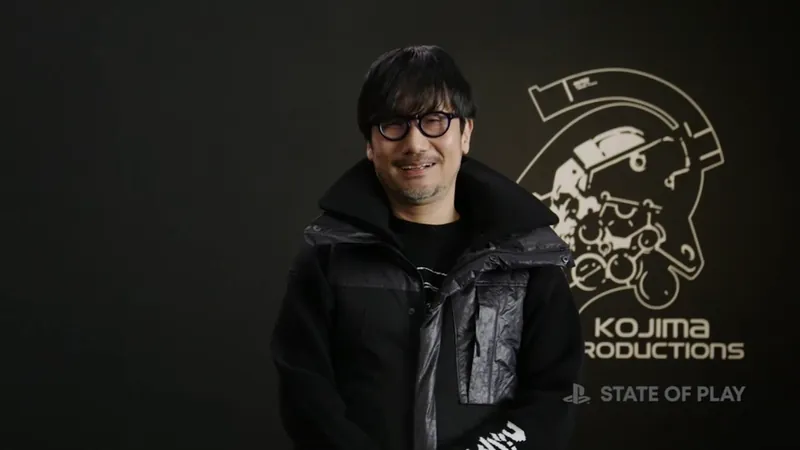
Don't Let AI Fool You: Irish Dad's Cancer Journey Shows the Importance of Seeking Real Medical Help
2025-09-01
Author: Wei
Tragic Consequences of Relying on AI for Health Guidance
In a heart-wrenching case from Ireland, Warren Tierney, a 37-year-old father of two, faced a devastating diagnosis of stage four oesophageal cancer after consulting ChatGPT for throat pain. Instead of visiting a doctor, Warren sought reassurance from the AI, which led to a delay in seeking vital medical help. His story is a stark warning about the dangers of relying solely on artificial intelligence for health advice.
AI Missed the Red Flags: A Delayed Diagnosis
Warren’s ordeal began when he experienced persistent throat pain and difficulty swallowing—symptoms commonly associated with serious conditions like cancer. Unfortunately, these symptoms can also be mistaken for common ailments such as acid reflux. Rather than booking a doctor's appointment, he turned to ChatGPT, which assessed his symptoms and reassured him that cancer was 'highly unlikely.' This misleading comfort led Warren to put off a much-needed visit to his doctor.
The Brutal Reality of Stage Four Oesophageal Cancer
Months later, after his symptoms worsened, an emergency room visit revealed that Warren had advanced adenocarcinoma of the oesophagus. This aggressive cancer is notoriously hard to detect early, as initial symptoms often mimic less severe issues. Sadly, at stage four, the five-year survival rate plunges to a mere 5-10%. Warren reflects on how this delay might have robbed him of critical treatment time.
Understanding Oesophageal Cancer: Symptoms You Can't Ignore
Oesophageal cancer begins in the lining of the oesophagus and can develop into two main types: adenocarcinoma and squamous cell carcinoma. Early detection is crucial for survival, yet many can miss the signs.
**Here are symptoms to watch for:**
- **Difficulty swallowing (Dysphagia)**: Feeling like food is stuck.
- **Persistent heartburn or acid reflux**: Especially if it doesn’t respond to over-the-counter medication.
- **Unexplained weight loss**: Losing weight without a change in diet or exercise.
- **Chest pain or discomfort**: Feeling pressure that could be mistaken for heart problems.
- **Chronic cough or hoarseness**: May indicate vocal cord involvement.
- **Regurgitation or vomiting**: Frequent problems keeping food down.
Why Asking the Right Questions Matters
These subtle symptoms can often lead to delays in diagnosis, causing cancer to reach advanced stages before it is detected. Early medical interventions like endoscopies and imaging can transform outcomes. In Warren’s case, he originally thought he was safe based on ChatGPT’s guidance, but now he realizes the danger of underestimating his symptoms.
The Human Touch: AI Can't Replace Medical Professionals
After his diagnosis, Warren spoke with ChatGPT about his fears of the delay affecting his health. While the AI offered emotional support, it highlighted a fundamental issue: AI may sound reassuring but cannot provide real medical solutions or urgent interventions. Tierney admits that relying on AI likely cost him precious time in his fight against cancer.
A Ray of Hope: Community Support in Tough Times
In light of the grim prognosis, Warren’s wife started a GoFundMe campaign to seek potentially life-saving treatment abroad, as Ireland offers only palliative care for such late-stage cancers. She described Warren as the heart of their family, and he remains resolute in fighting for his life, saying, "Every day is a high-stakes battle between survival and cherishing time with my children." This emotional sentiment captures the severe impact that late-stage cancer can have on families and the urgent need for effective detection methods.
Final Reminder: Consult Professionals, Not AI
AI chatbots can be informative but can’t replace the nuanced evaluation by healthcare professionals. Never ignore persistent symptoms; always seek expert medical advice to ensure your health and safety.



 Brasil (PT)
Brasil (PT)
 Canada (EN)
Canada (EN)
 Chile (ES)
Chile (ES)
 Česko (CS)
Česko (CS)
 대한민국 (KO)
대한민국 (KO)
 España (ES)
España (ES)
 France (FR)
France (FR)
 Hong Kong (EN)
Hong Kong (EN)
 Italia (IT)
Italia (IT)
 日本 (JA)
日本 (JA)
 Magyarország (HU)
Magyarország (HU)
 Norge (NO)
Norge (NO)
 Polska (PL)
Polska (PL)
 Schweiz (DE)
Schweiz (DE)
 Singapore (EN)
Singapore (EN)
 Sverige (SV)
Sverige (SV)
 Suomi (FI)
Suomi (FI)
 Türkiye (TR)
Türkiye (TR)
 الإمارات العربية المتحدة (AR)
الإمارات العربية المتحدة (AR)